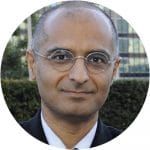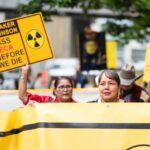Scrambling to sell a nuclear Middle East
By M.V. Ramana, Zia Mian | January 2, 2016
The leading international vendors of nuclear power reactors are competing hard to sell to the Middle East as markets dry up at home. Companies from France, Japan, South Korea, Russia, and the United States, often tied to respective governments or backed by them, have been pursuing reactor deals in Saudi Arabia, Egypt, Jordan, Turkey, and the United Arab Emirates, in some cases building on legacies left over from Cold War Atoms for Peace programs. Aggressive government-backed vendors and financing options to reduce the enormous up-front capital costs of modern reactors have combined with nuclear ambitions in some Middle East states to create a troubling momentum that threatens the hopes for well-being and peace in the region.
Together, we make the world safer.
The Bulletin elevates expert voices above the noise. But as an independent nonprofit organization, our operations depend on the support of readers like you. Help us continue to deliver quality journalism that holds leaders accountable. Your support of our work at any level is important. In return, we promise our coverage will be understandable, influential, vigilant, solution-oriented, and fair-minded. Together we can make a difference.
Issue: Bulletin of the Atomic Scientists Volume 72 Issue 1
Keywords: Areva, China, General Electric, Iran, Jordan, Middle East, Rosatom, Saudi Arabia, South Korea, Turkey, UAE, Westinghouse, energy policy, nuclear power, proliferation, reactor vendors, solar energy
Topics: Nuclear Energy
















